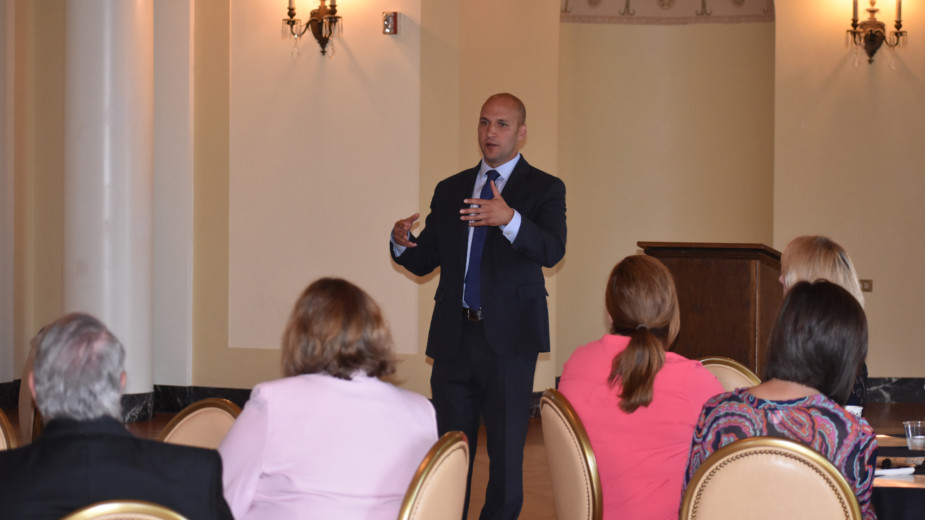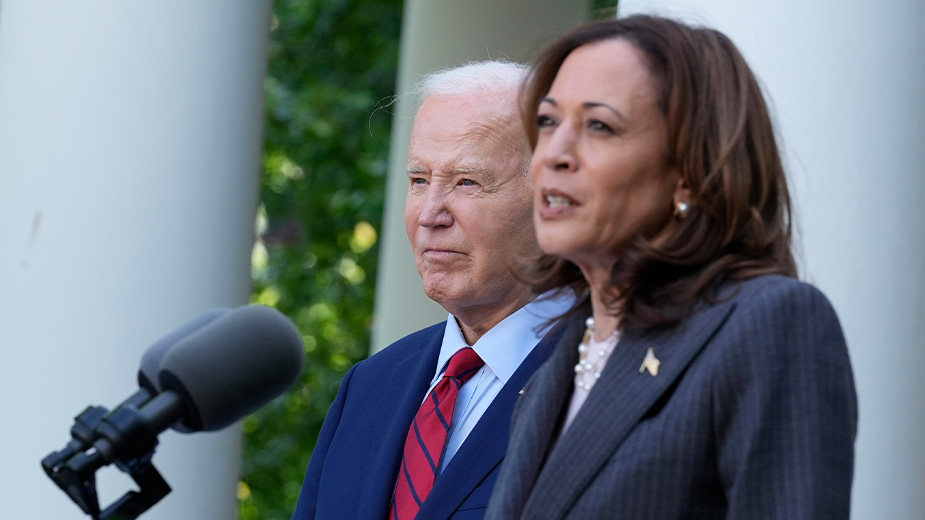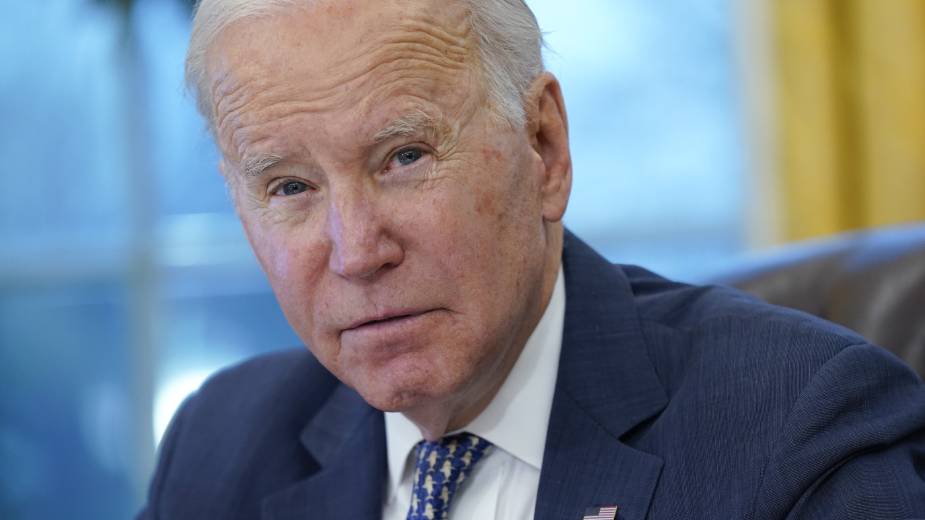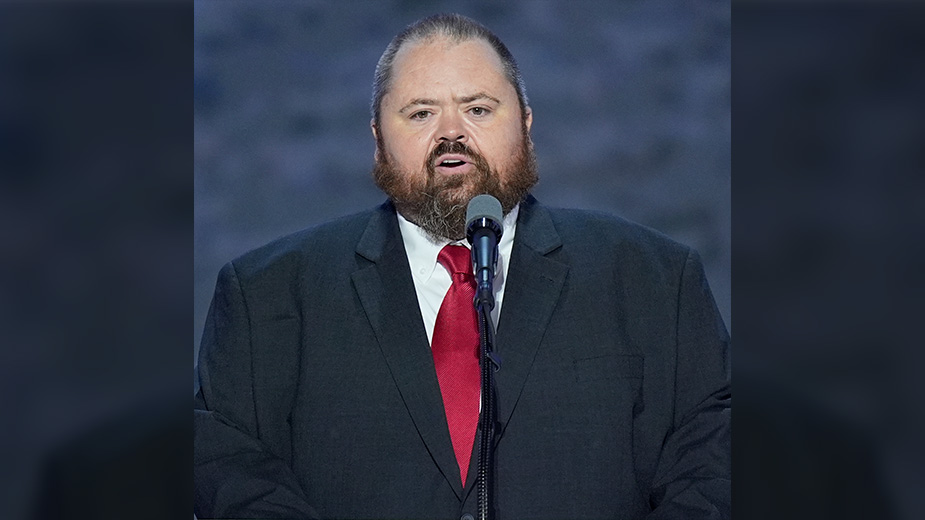Schiavoni Engages Voters at ‘Lattes & Legislators’
YOUNGSTOWN, Ohio – State Sen. Joe Schiavoni says his campaign for his party’s nomination for governor is going beyond large urban centers like the Three C’s – Cleveland, Columbus and Cincinnati – to secure support, unlike past Democratic candidates.
Schiavoni, D-33 Boardman, addressed several issues Monday morning including jobs, education and the opioid crisis during his hour-plus presentation at Stambaugh Auditorium kicked off the Youngstown Warren Regional Chamber’s new Lattes & Legislators series.
The intent of the new program is to directly connect state legislators with their constituents, said Guy Coviello, vice president of government affairs for the Regional Chamber.
“It gives the constituents a chance to hear directly from them about what’s going on in Columbus and to ask questions, and it gives the legislators a chance to have that connection with the people they represent,” he said.
Just over a dozen guests attended the program featuring the former Ohio Senate minority leader, who announced that he would seek his party’s nomination for governor in March.
In launching his campaign, Schiavoni said he will run across the state to seek votes, not just hitting the largest cities, where Democratic candidates of the past have gone.
“That only seemed to work for [Barack] Obama” and largely failed as a strategy for other candidates, he said. Instead, he is going to “a lot of places like Youngstown, places where they have people just like us,” he continued. Stops this week will take him to Freeport, Sandusky and Toledo as well as Cleveland.
During those visits, he tells audiences about what he has done in the state legislature and what he intends to do as governor. “I’m really just trying to figure out what people need in order to believe in elected officials again, in order to believe in building Ohio again,” he said.
Schiavoni discussed several pieces of legislation he has pushed over the past year or so, including a proposed $1 billion bond issue to address water infrastructure and a recently proposed bill that would authorize taking $200 million from the state’s rainy day fund to address the opioid problem “overtaking every community,” he said.
Support services are needed after treatment and each community’s needs are different when it comes to the opioid problem, so solutions can’t be cookie-cutter, he explained. Reaching back to his experiences working in Mahoning County Common Pleas Judge Jack Durkin’s drug court, he recounted how setting a path for people with “accountability along that path” can lead to recovery.
“Sometimes it takes time. Sometimes you’ve got to invest more money than you want to, but you’re either going to invest in rehabilitation or you’re going to invest in incarceration,” he said.
Job creation is another big issue he hears about as he crosses the state, he said. He advised employers to tell state officials what they need in terms of preparing the workforce. In addition to addressing job-training programs by linking them with the needs of employers, the state must deal with industrial brownfields, he said.
“Businesses love the fact that we’re halfway between New York and Chicago and we have Lake Erie and we have the Ohio River, but they hate the fact that they have to go into a place and put $2 million in and it takes two years to get [the site] clean,” he said. “It’s an investment that we as a state must make if we want to make our job creation stronger.”
Schiavoni acknowledged the investments he proposes require money, but noted that the state has decreased the income tax annually in recent years, primarily for high-income earners while making cuts to schools and local governments. “They act like they’re surprised when we have a shortfall,” he said.
He also was critical of the philosophy of the Republican-led General Assembly and Gov. John Kasich with regard to the budget, which he characterized as looking to cut programs when there is a budget shortfall rather than use the rainy day fund – now at $2 billion – to shore up programs or stabilize the budget through a change in the tax code.
Asked about transportation infrastructure, Schiavoni said he doesn’t see rail upgrades happening anytime soon. “We need to give communities what they need,” he urged. “Some communities need big buses. Some need vans.”
In response to a question by Coviello regarding whether he favored making it harder to put initiatives on the statewide ballot, the minority leader said he liked voters having the ability to respond to a law passed by the state that they disapprove of by responding to inaction by the state.
“I don’t like restricting that right. It’s a very slippery slope,” he said.
Coviello said he thought Monday’s event was “very successful.” The small audience appreciated the senator’s candid responses to their questions and they were very engaged, he added.
Those attending the breakfast appeared pleased with having the opportunity to address the state senator regarding issues of concern.
“I thought it was a fantastic conversation we had about the things that are most important in the Mahoning Valley” and Schiavoni hit those issues, such as underground infrastructure, “right on the head,” said Youngstown Fifth Ward Councilwoman Lauren McNally. The issues he focused on are “exactly the things” she hears about on City Council, she added.
“We touched on a lot of issues important to everyone in the Valley,” said Jennifer Connelly, administrator at Vista Center of Boardman.
Connelly asked Schiavoni about Medicaid, which has “been a concern” in her industry for several years. “It’s getting more and more difficult to do what we need to do,” she said.
“We talked about a lot of different issues today,” Schiavoni said. “It’s exciting for me when I see a lot of interest regarding how we build a stronger Ohio.”
Copyright 2024 The Business Journal, Youngstown, Ohio.



